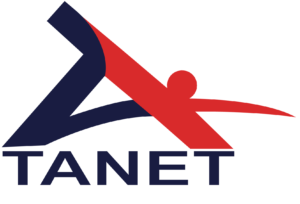As more small and medium-sized businesses (SMBs) adopt hybrid work models, where employees split their time between the office and remote locations, the need for robust data protection is greater than ever. A hybrid approach offers flexibility and increased productivity, but it also opens you up to new security challenges. Without comprehensive protections in place, SMBs risk data breaches, ransomware attacks, and other cyber threats. TANET is well-versed in the specific challenges SMBs face in a hybrid work setting and are experts at providing IT solutions to help safeguard sensitive business information.
Understanding the Challenges of Hybrid Work
In a hybrid work model, employees access business data and resources from a variety of locations, devices, and networks. While this flexibility is appealing, it also introduces several risks:
Insecure Networks Employees working from home or public spaces may connect to unsecured networks, making it easier for attackers to intercept data.
Device Vulnerability Personal devices or networks may lack up-to-date security, increasing the chance of malware infections or unauthorized access.
Data Exposure and Access Control With data spread across devices, applications, and storage locations, it’s more challenging to maintain control over sensitive information.
Complex Compliance Requirements For SMBs in regulated industries, hybrid work can complicate compliance with data privacy regulations such as HIPAA or GDPR.
Each of these risks underscores the need for SMBs to invest in IT solutions that adapt to a hybrid work model while still protecting data.
Essential IT Solutions for Data Protection in Hybrid Environments
Virtual Private Networks (VPNs) VPNs are crucial for securing remote connections to company resources. By encrypting data traffic, VPNs help protect sensitive information from interception when employees access corporate systems from outside the office. VPNs provide a secure tunnel for data, ensuring that company communications remain private.
Endpoint Security With employees accessing company data on various devices, endpoint security solutions like antivirus software, firewalls, and intrusion detection systems are essential. Endpoint security ensures that devices connecting to the network are free from malware and unauthorized software. Regular patching and updates also help minimize vulnerabilities that attackers could exploit.
Multi-Factor Authentication (MFA) MFA requires employees to verify their identities through multiple forms of verification, such as passwords, biometrics, or one-time codes. This added layer of security is crucial for protecting sensitive business data, especially when employees are working from different locations. Implementing MFA can significantly reduce the risk of unauthorized access, even if a password is compromised.
Cloud-Based Data Management and Backup Cloud-based solutions offer a reliable way for businesses to store and manage data in a secure, accessible environment. Cloud platforms typically provide enhanced security features, including encryption, access controls, and compliance management. Cloud backups also ensure that data can be recovered in the event of an attack, natural disaster, or hardware failure.
Data Loss Prevention (DLP) DLP tools monitor, detect, and block potential data leaks. These solutions track data usage and movements across devices, helping to prevent sensitive information from being shared or accessed improperly. DLP is especially valuable in a hybrid work environment, where it’s harder to oversee data interactions on remote devices and networks.
Employee Training and Awareness Programs Human error remains a significant security risk. Comprehensive cybersecurity training can help employees recognize and avoid phishing attacks, social engineering tactics, and other cyber threats. Regular training ensures that employees are aware of the latest threats and best practices for securing company data, regardless of where they’re working.
Why SMBs Should Embrace Proactive Data Protection
The risks of a data breach, ransomware attack, or loss of sensitive information can be catastrophic for SMBs, leading to financial losses, regulatory penalties, and reputational damage. A proactive approach to data protection can mitigate these risks by focusing on both preventative measures and response capabilities.
Advantages of Early Investment in Security
While the initial investment in IT solutions for hybrid work might seem steep, the costs of a security incident often far exceed the expenses of preventive measures. By adopting solutions such as VPNs, MFA, endpoint security, and regular backups, SMBs can establish a resilient security foundation that adapts to changing work environments.
How TANET Can Support SMBs in Securing Hybrid Work Environments
As a dedicated provider of IT support and cybersecurity services, TANET offers tailored solutions designed to protect SMBs from the evolving security risks of hybrid work. Our team can assist with implementing and managing essential security measures, including endpoint protection, data backups, and multi-factor authentication. With TANET’s expertise in network management, cloud security, and web services, SMBs can confidently navigate the complexities of a hybrid work model while safeguarding their critical data.
A well-implemented hybrid work security strategy not only enhances data protection but also strengthens business continuity and productivity. With TANET’s support, SMBs can enjoy the flexibility of hybrid work without compromising security, ensuring that their valuable business data remains secure—wherever work takes them.
Contact TANET today to receive a no cost, no obligation estimate and let us help you protect your business from cyber attacks—before they happen!
